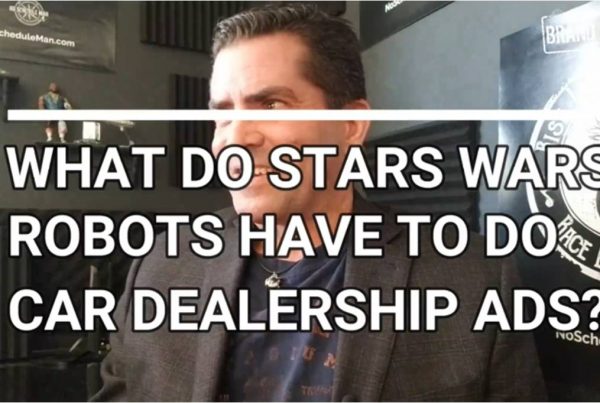I’ve been fortunate to get to know a great many interesting and inspiring people. I’m grateful to have learned a lot from each of them.
One of those people is Mark Malerba.
A proud father of two children (Luca, 4 and Mila, 2) and loving husband to his wife of almost 8 years (Caterina), Mark was recognized as one of London’s “Top 20 under 40 (years of age) Emerging Leaders” just last year. Mark is also Vice President of Metropolitan Maintenance, a London, Ontario-based and family-owned janitorial service provider that has been in business since his parents, Mike and Joanne, started the company in 1980.
Over the course of more than three decades, Metropolitan Maintenance has earned a well-deserved reputation of doing business consistently with integrity and respect. As such, the company has been recognized with several awards in recent years, including the Consumer Choice Award for Janitorial Service; Best of London award for Best Cleaning Service; London Chamber of Commerce’s London Quality Award; the Better Business Bureau’s Business Integrity Award; and the Family Enterprise of the Year, awarded by the Canadian Association of Family Enterprise, among others.
Although he did not originally aspire to be a part of the family business, when you talk to Mark, you quickly get the sense that he has a deep and genuine respect for his parents and the legacy they’ve built, and is extremely proud to be a part of it now. Like most of us, Mark took a somewhat indirect path to his current place, but has now found a role that suits him and also benefits those around him.
While he is rightfully proud of the company’s accomplishments, Mark does not seem to be defined by them. Rather, he has always struck me as a very humble and genuine person who is sincerely grateful for the effort of everyone that makes a contribution into making Metropolitan Maintenance the great company that it is.
Here is my conversation with Mark Malerba:
Kevin: What were your recollections of your parents, back when they started this business, and what was your perception of all of that?
Mark: I remember when I was young even going to a specific site with my Dad. I don’t know why this one sticks in my head but it was a printing shop. He would clean it on the weekends and I would go with him, just because I was fascinated by all the supplies. I just loved being in that kind of environment. And so he’d take me. I wouldn’t do any cleaning, but I would just be there and just kind of watch him and spend time there.
The one thing that both my parents did was, as I was starting to grow up, I was involved in soccer and basketball and hockey and I can never remember them ever missing a game. And we traveled quite a bit, especially for soccer, all over Ontario. We even went to Italy one year and my Dad came for two weeks during March Break. So as busy as they always were, they always made time.
Kevin: What did your Dad do prior to starting this company, and how did Metropolitan Maintenance even come to be?
Mark: He came from Italy, I believe when he was 19. And he didn’t speak any English or anything. He did have some family here that helped him get started. I know he mentioned he worked for a little while at the hospital as a patient porter. But he always felt like he could do more. So he put an ad in the paper for himself, basically just advertising himself, that he wanted to do more and that he had the skills and desire to basically run a business.
One of the calls he got was from the owner of a cleaning company. He had never run a cleaning company before. So he just basically figured it out as he went. He managed the company. He did the cleaning, he basically was doing all of it. And he ran it like it was his own business. And then the point came – I’m not sure when the transition happened of him leaving that business or that owner deciding to retire, but that’s when my Dad decided to go out on his own and start this business. My Mom told him he was crazy because there was a lot of risk involved and a lot of competition at that time too. But again, his whole thought process was, “I can do more, and I want to do more.” And he worked extremely hard to get it started.
Looking back, you wonder, ‘Would I be able to do that if I went to a country where English wasn’t the first language, or where I didn’t know anybody really, and was basically starting from scratch?’
Kevin: There’s a resourcefulness there that, in my personal feeling, we’re lacking as a culture in general.
Mark: I agree
Kevin: To think about it in the context of, ‘If I were to go to some other country, and learn how to speak the language and try to figure out how to start a business from scratch?’ When you think of it that way, it really is pretty astounding.
Mark: It is. That’s how I always looked at it, is, where would you even know how to begin?
Kevin: I’d like to talk about your journey into the family business.
Mark: I’ve always been involved with the family business, but it was really in 2005 – so it’s been 9 years – since I decided to really commit full time. Now I’m Vice President.
For the first few years, I really just managed business development. I did a lot of learning. And then, slowly, took what I had learned from Ivey (School of Business), and I had worked in consulting for a couple of years prior to coming back into the family business, so I took what I learned in those experiences and started implementing them here.
And it was definitely the best decision I ever made. It was a good mix. My father’s had the years of experience of being in this industry and running the business and I bring the formal tools that I’ve learned. He wasn’t fortunate enough to have the opportunity to go to university and that kind of thing so that’s where we mesh well.
Kevin: To what extent is he still involved?
Mark: He’s the President and he’s still here every day. He enjoys quoting jobs, going to visiting clients. He doesn’t have any thoughts of retirement.
I think that, slowly, he’d maybe like to start taking some more time off, but he always says, “If I enjoy it and my health allows me to keep doing it, then I want to keep doing it.”
My wife always says we’re like the Brady Bunch here. We get along. And there’s no issue on my end that he stays as long as he wants.
Kevin: Can you take me back to when you were younger, even before Ivey and all of that? What were your thoughts about maybe being a part of this business? What was going through your mind about what you wanted out of the work world and what you wanted your place to be in it?
Mark: I played a lot of sports so I think that a lot of kids that are into sports think that, at one time, maybe they want to be a professional athlete. But then you realize quickly that’s not going to happen.
In high school, at one point I was thinking about medicine. But then in Grade Eleven biology, we had to start dissecting things, and that didn’t go well (laughs).
So then, for the longest time, I did have an interest in law. I did speak to three lawyers whom I’d known for a while and trusted. All three of them suggested I not go into law. So I took that information for what it was and decided that if these were three people that are in the role, and that I trust, and that have the experience and basically are telling me that if they had to do it again they wouldn’t do it, that kind of pushed that one aside too.
But you start to realize that you have all these ideas as you’re growing up.
So growing up in a family business, you always have an interest in business because it’s always there. My parents always suggested or encouraged me to do something else and not to come into the family business because the last thing I think any second or third generation should be is pressured to go into the family business, because you’re not going to do well if you don’t want to be there.
That’s why, when I went through university, I still went for my business degree. At that point I still wasn’t sure what I would do, whether I would come here or interview for different positions all over the map. And then I decided to take the consulting position at Ivey because they had a consulting group. And that was a great decision because we got to work with different sized organizations: small, medium, profit, non-profit or whatever they may be, and you get to see what kinds of issues they may face and help them overcome them. So that’s what I talked about before, about taking some of that experience and applying it here. That was definitely a positive decision that I made was not coming right into the family business but doing something different.
And then you ultimately realize that you do want to do this. I don’t think anybody grows up thinking, “I want to run a cleaning company.” It’s back to that idea that it’s not the glamourous movie star job and all these things, but once you grow up with it, it’s kind of in your blood too. It’s in you, it’s a part of you and no matter what you’re doing, no matter what industry you’re in, no matter what service or product or whatever you’re doing, if you do it with passion, then you’ll do it well. Whether you’re selling a widget, cleaning a floor, cutting a lawn or whatever it is, as long as you do it right and do it well and take care of the people that work for you, I think you’ll go a long way.
Kevin: So that brings us back to where I think we started. Rather than asking you where the passion comes from when it wasn’t something you grew up with a burning desire to do, the theme that runs through the whole thing to me seems to be one of family and partnership and integrity. To what extent is it fair to say that that’s maybe the link to the passion? There seems to be a sense of ownership and pride amongst everybody here.
 Mark: That’s exactly it because there are a lot of employees that are still with us that have been with us even from when my parents started. And in the cleaning business …
Mark: That’s exactly it because there are a lot of employees that are still with us that have been with us even from when my parents started. And in the cleaning business …
Kevin: In any business
Mark: Yeah
Kevin: It doesn’t happen anymore.
Mark: It doesn’t. It doesn’t. And that’s because of the respect my parents earned from the staff, seeing them work as hard as they did. Seeing my Dad sell during the day and then cleaning at night. Actions speak louder than words, right?
Employees do not feel like they can’t pick up the phone and call one of us, whether it’s good or bad, it’s like any family: if you communicate well, then more often than not, you’re going to have positive results. And if you don’t communicate in business, you don’t know where you stand.
Kevin: In my experience, communication, even with the best of intentions, can still go wrong, or can be taken a different way. And so to create and foster that sense of family and ownership, what do you need to be doing as somebody that’s responsible for operating the business to interact with the rest of the team members and foster that environment?
Mark: There are daily meetings so that everyone knows what’s going on and everybody’s on the same page. The employees will either communicate a lot of the time with our supervisors and managers. Our management personnel will visit the sites to get feedback from the employees and to check on them and tell them they’re doing a good job. We even encourage the clients to communicate with our employees directly as well, whether it’s to tell them pay special attention to a specific boardroom that evening because of a special visit, or to say, ‘You know what? Thank you so much for everything you’ve been doing for us.’
We even find a lot of times that clients invite our staff to their luncheons or parties or give them a little something at Christmas just as a sign of appreciation. It kind of trickles down all the way through. And I think that’s why we’ve been successful too is because those front line employees that are the heart and soul and backbone of the company, they feel accountable and take ownership of what they do. They feel like we’re all in this together. This is one big family and if I do my part and they do their part – if everybody does their part, then we’re all better off.
To Visit the Metropolitan Maintenance website, please CLICK HERE








Recent Comments